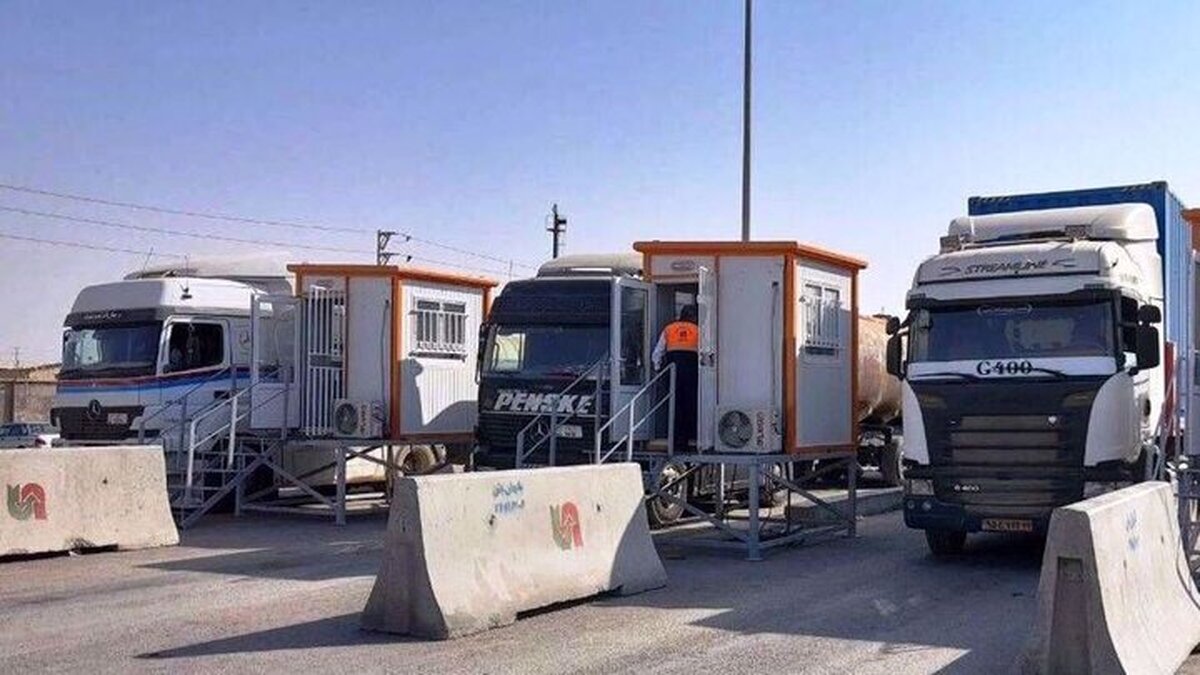
Exports From Bazargan Border Crossing Top $2b in 7 Months
EghtesadOnline: A total of 419,556 tons of commodities worth $2 billion were exported from Bazargan border crossing in West Azarbaijan Province (northwestern Iran bordering Turkey) during the first seven months of the current Iranian year (March 20-Oct. 21).
“Petrochemical products, different types of industrial and motor oils, paraffin, agricultural products [including watermelons, honeydew, grapes, peanuts, garlic, dates, apples, dried fruit, vegetables and licorice extract], stones, ceramic and glass artifacts, iron and steel scrap and textile were the main exported goods from Bazargan border crossing over the seven-month period,” border official Mojtaba Baazgir was quoted as saying by Fars News Agency.
He added that $205 million worth of products were imported via the crossing over the same period under review, showing a 46% decline compared with the similar period of last year.
“Imports, for the most part, included mechanical spare parts, electrical devices and machines, cast iron artifacts, iron and steel, plastic products, paint and ink, vehicles, fabric, embroidered and crocheted textiles, aluminum, nickel and other metals, natural rubber and welding machines,” he said.
According to the official, Bazargan customs and transit revenues experienced a 35% decline to stand at 1.58 trillion rials (5.86 million) due to the outbreak of the coronavirus pandemic and decline in domestic and foreign trade.
Bazargan is a city and capital of Bazargan district in Maku County and is the most important Iranian land border for importing from and exporting to Turkey.
To stem the spread of Covid-19, Turkey in March shut its border gates with neighboring countries, including Iran and Iraq.
The Bazargan border initially opened for trade in May, but restrictions were applied regarding incoming and outgoing truck traffic.
According to Spokesman of Islamic Republic of Iran Customs Administration Rouhollah Latifi, 60 Iranian trucks per day were allowed to transfer exports to Turkey from Iran as per new agreements as of May 5.
Trucks started arriving at border gates after Trade Minister Ruhsar Pekcan announced in June that Turkey has reopened the Gurbulak border gate with Iran (known as Bazargan on the Iranian side of the border).
Trucks from Iran started arriving at the Gurbulak customs gate after the announcement and were to enter Turkey after the completion of procedures. Turkish trucks heading for Iran also started arriving at the border gate.
Strict measures such as imposing lockdowns and closing borders deeply affected the country's exports, particularly to Europe, its top export market, and the Middle East.
Turkish and Iranian citizens are allowed to cross the border into their own countries in a controlled manner. In this context, a large number of Iranian citizens at the border crossing entered their country after the completion of procedures.
As part of the measures taken, truck drivers and Turkish citizens showing Covid-19 symptoms during checks by thermal cameras and paramedics will be transported by ambulance to hospitals in the region.
Those who do not show symptoms will remain in quarantine under the supervision of health officials for 14 days during their stay in Turkey.
Latest data released by Turkish Statistical Institute show Iran’s trade with Turkey stood at $2.28 billion during the first three quarters of 2020 (January-September) to register a decrease of 59.76% compared with the corresponding period of 2019.
Iran exported $782.3 million worth of goods to Turkey during the period to register a 78.3% year-on-year drop. Imports from Iran's neighboring country stood at $1.5 billion, down 27.3% YOY.
Iran-Turkey monthly trade fell to under $300 million in the ninth month of the year, mostly due to a fall in Iran's exports to the neighboring country.
Iran-Turkey trade in the month of September amounted to $293.025 million, indicating an 11.36% decrease compared to September 2019.
Exports to Turkey accounted for $85.4 million of the figure, down 29.62% YOY, while Turkey’s exports to Iran stood at $207.618 million, down 0.76% YOY.
The huge decline in bilateral trade comes, as the two countries have been hit hard by the new coronavirus pandemic since early 2020.


